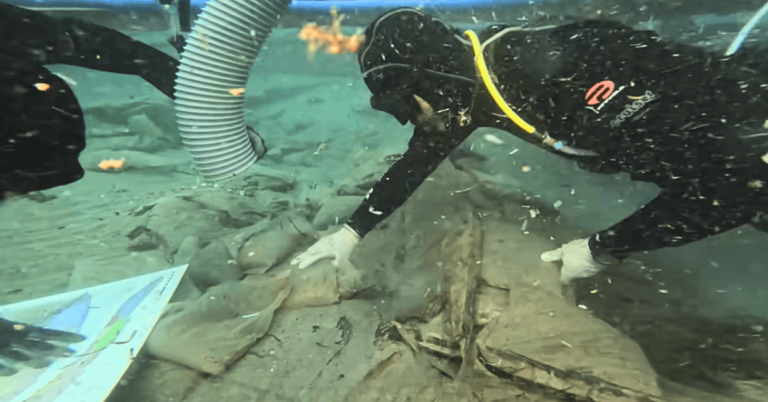Spanish archaeologists removed a 2600-year-old shipwreck from waters off the nation’s southeastern coast, 20 years after the wreck was initially discovered.
The wreck dates to the 7th century B.C.E and was found in 1994 off Murcia coast near Mazarron town.
The ancient Phoenician shipwreck has been of particular interest to archaeologists as it is just one of the few Phoenician-era shipwrecks found largely intact, said Carlos de Juan, the director of the excavation project.
The University of Valencia coordinated with the regional culture ministry in Murcia to carry out the excavation.
A team of 14 researchers worked with Juan to retrieve the wreck from the waters in less than 2 months with the project starting on September 13 and ending on November 7.
Phoenicia was a civilisation along the eastern Mediterranean coast, in the region which is now Lebanon, Syria and Israel.
It existed from 1500 to 300 BCE and although the Phoenicians lived off trade and had an alphabet that was the basis for the ones formed in ancient Greece and Rome, many traces of the civilisation were lost until the 20th century.
Artefacts from this shipwreck throw light on the civilisation’s culture since so little is known about its naval ships and other naval technology compared to what is known about ancient Greece and Rome.
Hence, this wreck is quite important for studying the Phoenicians, Juan said.
Every piece of the wreck has been taken to a lab at the Museum of Underwater Archaeology in southern Spain, where it will be conserved, in a process that will take a few more years.

